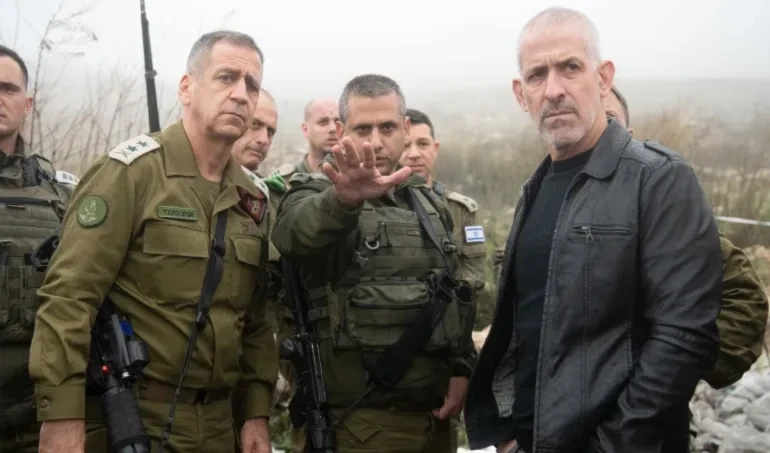Shin Bet chief to resign once war on Gaza concludes
The Israeli occupation's Shin Bet Chief, Ronen Bar, who was one of the Israeli officials to claim that Hamas was deterred, is set to resign after the genocidal war in the Gaza Strip ends.
-

Israeli occupation Chief of Staff Aviv Kochavi (L) and Shin Bet Chief Ronen Bar (R) visit the scene after a Resistance operation in an undated image, occupied Palestine. (IOF media)
Israeli media quoted former Shin Bet chief, Yaakov Peri, on Sunday, as saying to the occupation army's radio that the current head of the agency, Ronen Bar, informed him that he would resign from his position once the war on the Gaza Strip war over.
Speaking about Bar, Peri stated, "I spoke with him directly... he will be among the first to hand over the keys."
Bar, who was approved by the government of Naftali Bennett earlier on October 11, 2021, and had succeeded Nadav Argaman after working as his assistant for three years, announced that he was taking responsibility for the Israeli occupation forces' failure in the Gaza Envelope on October 7.
In a message to Shin Bet members, a week after the start of Operation Al-Aqsa Flood, Bar stated, "Despite the series of activities we carried out, unfortunately, on Saturday, we did not succeed in creating a sufficient warning capable of thwarting the attack... As the head of the organization, the responsibility for this lies with me, and there will be time for investigations, but now we are fighting."
Bar was among the Israeli occupation officials who adopted the prevailing theory, before October 7, claiming that Hamas "is restrained and does not want war, it only wants to rule and gain economic benefits."
Through this statement, Bar followed in the footsteps of the Chief of Military Intelligence, Aharon Haliva, who also announced that he would resign on the day after the war.
New Oct.7 Israeli failure: Undermanned, out of position, unorganized
Israeli occupation forces (IOF) lacked a structured response plan for a scenario similar to Operation Al-Aqsa Flood, as per an investigation released by The New York Times in late December, quoting past and present soldiers and officers.
"As far as I recall, there was no such plan," said Yaakov Amidror, a retired Israeli general and former advisor to Prime Minister Benjamin Netanyahu, as quoted by NYT.
The investigation found that "Israel’s" military was "undermanned, out of position, and so poorly organized" that soldiers communicated in WhatsApp groups created on the spot and relied on social media posts for targeting information. Troops rushed into battle thinking that the combat would be brief so they were armed as such. Helicopter pilots were ordered to look for news reports and Telegram channels to choose targets.
Prior to the operation, Israeli intelligence officials thought that it was unlikely that Hamas would execute such an ambitious attack that they minimized the radio surveillance of Hamas, deeming it "a waste of time."
Additional information from The New York Times investigation revealed that it took the IOF and Israeli security forces several hours to comprehend the full scale of the incident. Moreover, the IOF units positioned as the "initial line of defense" in the Gaza envelope settlements were not adequately trained for this scenario.
Read more: Israeli media describes Netanyahu as the 'master of failure'

 3 Min Read
3 Min Read








